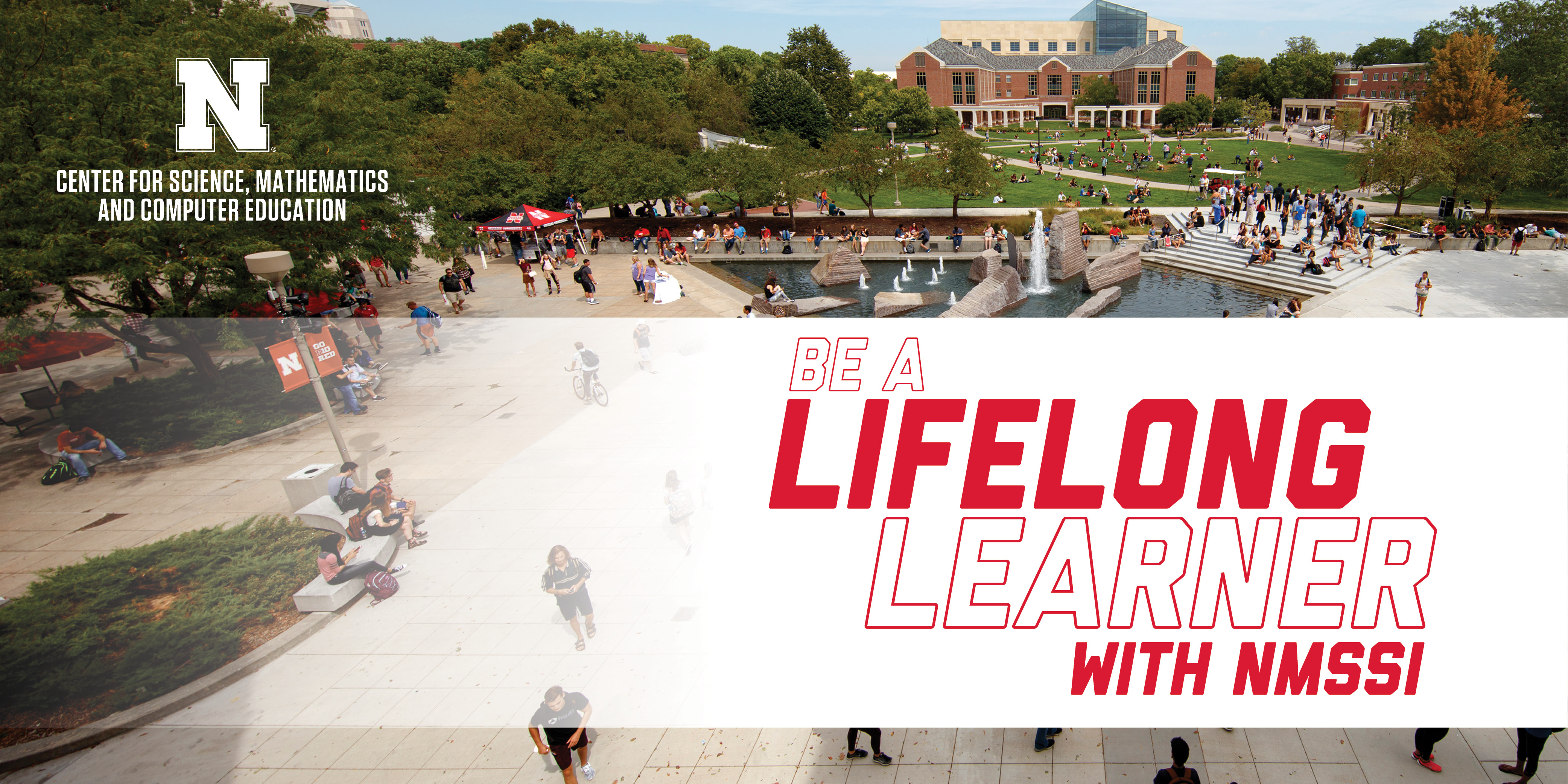
Learn a new problem-solving process: Computational thinking
[NOTE FROM MICHELLE FOR 2025: Just FYI - "Learn in Place" was a catch-phrase used for Summer 2020 (the COVID summer). Although it's up to you, it might be appropriate to adjust this.]
Math 803T: Mathematics of Computational Thinking is being offered in Summer 2025 through the NMSSI: https://scimath.unl.edu/nmssi intended for an audience of middle-level and upper elementary teachers.
The class focuses on using algorithmic processes to break down complex problems and explore ways to quantify decision-making for current, relevant issues such as switching to electric cars or deciding who should receive heart transplants (or other limited medical treatments such as ventilators during COVID-19). Additional applications include: internet privacy, networks, DNA sequencing, streaming, and cryptography. Adaptations of the various projects will be developed for use with students. Experience with spreadsheets will be helpful but is not required.
Math 803T (Class #: 8790) will be offered via web conferencing (Zoom) from July 7-18, Monday-Friday, 8 a.m. to noon. Online NMSSI courses that are not asynchronous qualify for a 20% tuition discount on resident tuition for Nebraska teachers. You can apply now for additional NMSSI Fellowships (https://forms.gle/ZiBsQbnbcRJWtXmu5), and read more about the costs at https://scimath.unl.edu/nmssi-costs-2023. Earn 3 graduate credit hours in just two weeks!
Computational thinking (CT*) is a problem-solving process that includes (but is not limited to) the following characteristics:
• Formulating problems in a way that enables us to use a computer and other tools to help solve them
• Logically organizing and analyzing data
• Representing data through abstractions such as models and simulations
• Automating solutions through algorithmic thinking (a series of ordered steps)
• Identifying, analyzing, and implementing possible solutions with the goal of achieving the most efficient and effective combination of steps and resources
• Generalizing and transferring this problem-solving process to a wide variety of problems
These skills are supported and enhanced by a number of dispositions or attitudes that are essential dimensions of CT. These dispositions or attitudes include:
• Confidence in dealing with complexity
• Persistence in working with difficult problems
• Tolerance for ambiguity
• The ability to deal with open-ended problems
• The ability to communicate and work with others to achieve a common goal or solution
To apply as a non-degree-seeking, post-baccalaureate student at UNL, create an account in CollegeNet: https://go.unl.edu/gradapp. Once you reach the Program Selection step in type "post" and select the "Post-Baccalaureate (Non-Degree)" program as your degree objective. For term, select “Summer 2023”. Transcripts that you upload on your own are considered “unofficial” but sufficient for the application review. You will need official transcripts in order to register for courses or receive a grade in the course.
Visit the course catalog to explore other courses: https://go.unl.edu/nmssi-course-catalog-2023. Join the NMSSI community and “learn in place!” Contact us at nebraskamath@unl.edu with questions.
The Benefits of the NMSSI:
• Each course is worth 3 graduate credit hours
• Courses are offered utilizing several instructional models to allow for flexibility in scheduling
• Enroll in one simple application as a post-bac student before declaring a degree or major at https://go.unl.edu/gradapp
• Teachers can apply for additional tuition fellowships from the NMSSI: https://forms.gle/ZiBsQbnbcRJWtXmu5
*Copyright 2011. International Society for Technology in Education (ISTE) and the Computer Science Teachers Association (CSTA). This material is based upon work supported by the National Science Foundation under Grant No. CNS-1030054.